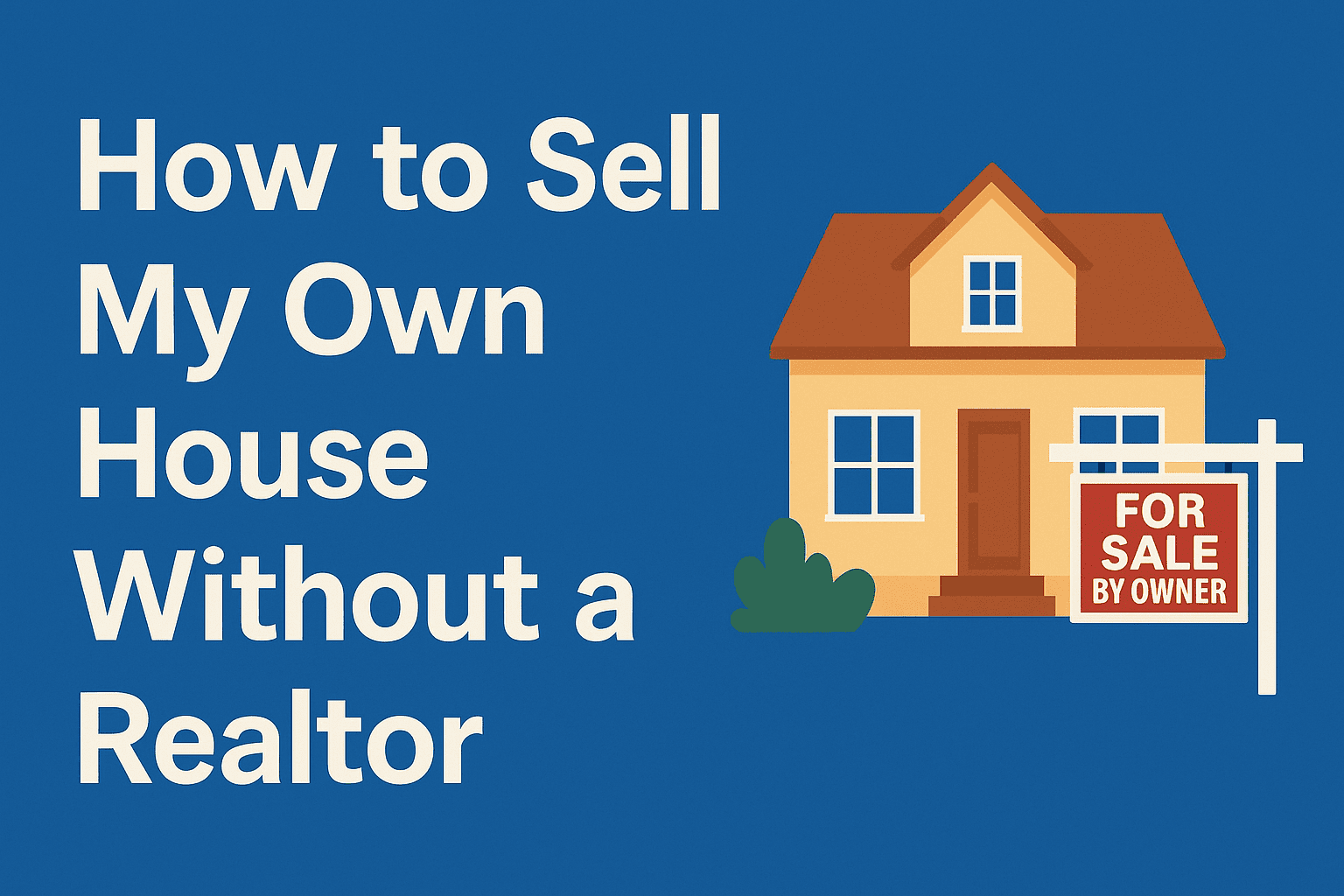Home Selling Mistakes: How to Avoid Them and Get Top Dollar for Your Property

Selling your home can be a daunting task. It requires patience, strategy, and, most importantly, knowledge of the real estate market. Unfortunately, many homeowners make common mistakes that can cost them time, money, and even the sale of their property. In this blog, we’ll discuss the most common home selling mistakes and how to avoid them, so you can sell your home quickly and at the highest possible price.
Mistake #1: Overpricing Your Home
One of the biggest home-selling mistakes homeowners make is overpricing their home. Setting a high price can be tempting, but it can also backfire. Buyers will compare your home to others in the area, and if yours is priced too high, they may not even consider it. To avoid this mistake, do your research on comparable homes in your area and set a realistic price that reflects the current market conditions.
Mistake #2: Neglecting Repairs and Upgrades
Another home-selling mistake homeowners make is neglecting repairs and upgrades. Buyers want to see a well-maintained home that’s move-in ready. If your home has outdated features, damaged floors or walls, or leaking faucets, it can turn off potential buyers. Spend time and money fixing any issues and consider making upgrades that add value, such as modernizing the kitchen or bathroom.
Mistake #3: Ignoring Curb Appeal
First impressions matter, and the exterior of your home is the first thing buyers will see. Neglecting curb appeal can be a costly mistake. A well-maintained yard, a fresh coat of paint, updated landscaping, or even a charming water fountain or bird bath can make a huge difference in attracting potential buyers. Take the time to spruce up the exterior of your home to make it look inviting and appealing.
Mistake #4: Not staging your home
Staging your home can help potential buyers envision themselves living in the space. Many homeowners make the mistake of not staging their home or not doing it properly. Staging can be as simple as decluttering, removing personal items, and rearranging furniture to highlight the space. Consider hiring a professional stager who can help you create a cohesive and attractive look that appeals to potential buyers.
Mistake #5: Limiting Marketing Efforts
Marketing your home effectively is crucial to finding the right buyer. Some homeowners make the mistake of limiting their marketing efforts, such as by only listing their home on one website or not using social media to promote their property. The more exposure your home gets, the more potential buyers you’ll attract. Consider hiring a real estate agent who can help you with marketing and has access to a wider range of resources.
Mistake #6: Being unprepared for shows
When it comes to showings, being unprepared can be a major mistake. Buyers want to see a clean, clutter-free home that’s easy to navigate. If your home is messy or cluttered, it can be difficult for buyers to see its potential. Make sure your home is clean and organized before showings, and consider temporarily removing any personal items that could be distracting.
Mistake #7: Refusing to Negotiate
Finally, refusing to negotiate can be a costly mistake for sellers. It’s important to be open to negotiation and to work with potential buyers to find a mutually agreeable price. If you’re inflexible, you may miss out on a potential sale. Remember, selling your home is a business transaction, and being willing to negotiate can help you get the best possible price for your property.
What Includes in the Home Selling Process?
The process of selling a home can vary depending on the location and local laws, but generally includes the following steps:
- Choosing a real estate agent: A real estate agent can help you set a listing price, market your home, and negotiate with potential buyers.
- Preparing your home for sale: This may involve making necessary repairs, staging the home, and decluttering to make the home more attractive to potential buyers.
- Setting a listing price: Your real estate agent can provide you with a comparative market analysis (CMA) to help you set a competitive listing price based on the local real estate market.
- Marketing your home: Your agent will create a listing for your home on the Multiple Listing Service (MLS), as well as other online platforms and real estate publications.
- Showing your home: Potential buyers will schedule appointments to view your home. It’s important to keep the house clean and tidy during this time.
- Receiving an offer: When a potential buyer is interested in purchasing your home, they will submit an offer. You can either accept, reject, or negotiate the offer.
- Negotiating the contract: Your agent can help you negotiate the terms of the contract, such as the purchase price, contingencies, and closing date.
- Closing the sale: Once the contract has been finalized and all contingencies have been met, the sale can proceed to closing. At closing, the buyer will pay for the home, and the title will be transferred to them.
- Moving out: After closing, you will need to move out of the home and transfer ownership to the buyer.
It’s important to keep in mind that the home selling process can take time and may require patience and flexibility. Working with an experienced real estate agent can help make the process smoother and less stressful.
How Can I Sell My House Quickly?
Selling a house quickly requires a strategic approach that involves pricing the property competitively, making necessary repairs and improvements, staging the home effectively, and marketing it aggressively. Here are some tips to help you sell your house quickly:
- Price the property competitively: Pricing your home too high can deter potential buyers, so it’s important to price your property competitively from the start. Research the local real estate market to determine the fair market value of your home.
- Make necessary repairs and improvements: Make any necessary repairs and improvements to your home to make it more appealing to potential buyers. Consider updating the kitchen and bathrooms, repainting the walls, and replacing outdated fixtures.
- Stage the home effectively: staging your home can help potential buyers envision themselves living in the space. Consider hiring a professional stager to help you showcase the best features of your home.
- Market the property aggressively: Marketing your property aggressively is key to attracting potential buyers quickly. List your property on major real estate websites, hire a professional photographer to take high-quality photos of your home, and consider hosting an open house.
- Work with a reputable real estate agent: A reputable real estate agent can help you navigate the selling process and connect you with potential buyers. Choose an agent with a proven track record of selling homes quickly in your area.
By following these tips and working with a reputable real estate agent, you can increase your chances of selling your house quickly.
What precautions should be taken while selling property?
Selling a property can be a complicated and stressful process, and there are several precautions that you should take to ensure that the transaction goes smoothly. Here are some important steps to consider:
- Hire a reputable real estate agent: A good real estate agent can guide you through the selling process, help you set a realistic asking price, and negotiate with potential buyers on your behalf. Look for an agent who has experience selling properties in your area and has a strong track record of success.
- Get your property inspected: Before you put your property on the market, it’s a good idea to have it inspected by a professional. This can help identify any potential issues that could impact the sale, such as structural problems or issues with the electrical or plumbing systems.
- Price your property correctly. Pricing your property too high can discourage potential buyers, while pricing it too low could mean that you leave money on the table. Work with your real estate agent to determine a fair asking price based on comparable properties in your area.
- Disclose any known issues: If you’re aware of any issues with your property, such as leaks, mold, or other damage, it’s important to disclose them to potential buyers. Failure to do so could result in legal action down the line.
- Consider legal representation: Depending on the complexity of the transaction, you may want to consider hiring a real estate attorney to represent your interests. They can help review contracts, negotiate terms, and ensure that the sale is legally binding.
How do I manage my money after selling my house?
Selling your house can be a significant financial event, and it’s important to have a plan for managing your money after the sale. Here are some tips to consider:
- Pay off any outstanding debts: If you have outstanding debts, such as credit card balances or car loans, consider using some of the proceeds from the sale to pay them off. This can help reduce your overall debt load and improve your credit score.
- Build an emergency fund: It’s always a good idea to have an emergency fund to cover unexpected expenses, such as medical bills or home repairs. Consider setting aside a portion of the sale proceeds to establish an emergency fund.
- Invest for the long term: Depending on your financial goals, you may want to consider investing some of the sale proceeds in a diversified portfolio of stocks, bonds, and other assets. This can help you generate long-term growth and income.
Make sure you put in maximum effort to prepare your home and are willing to negotiate a bit during the final stages. If you follow this strategy wisely, you should be able to secure a buyer within three months. By combining these tactics with a competitive price, you can increase your chances of selling your home quickly.
Contact us: Greater Houston Houses LLC
Phone Number: 832-510-6471
Email: vaughn@greaterhoustonhouse.com

















